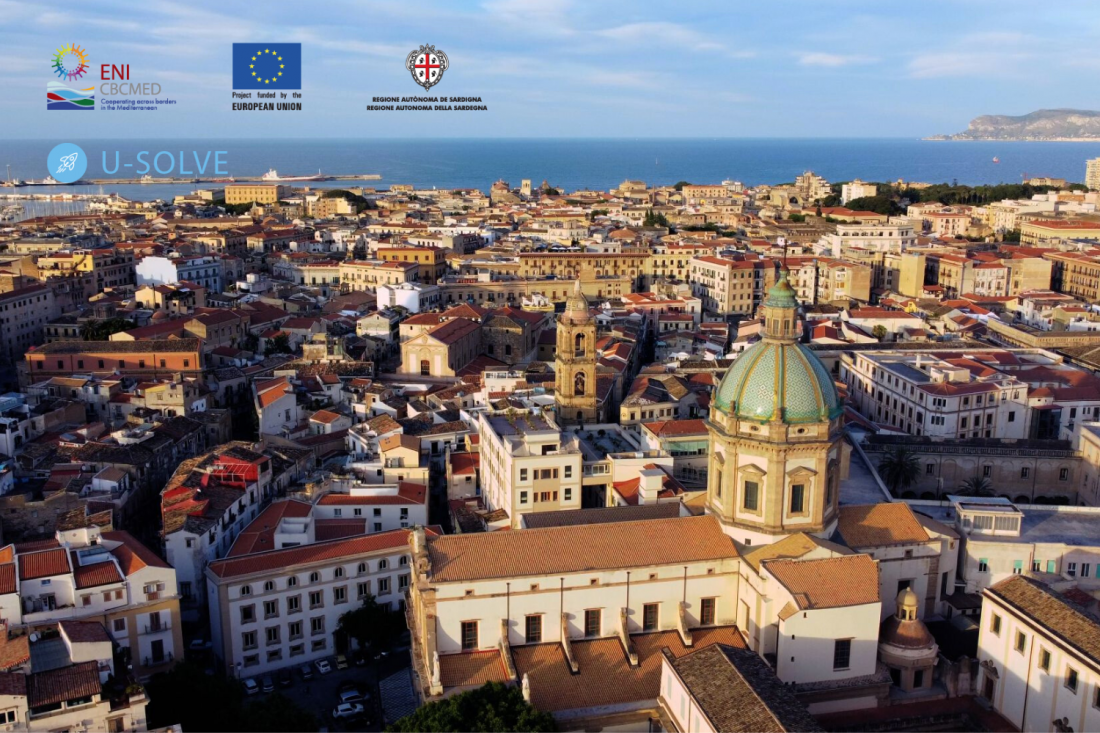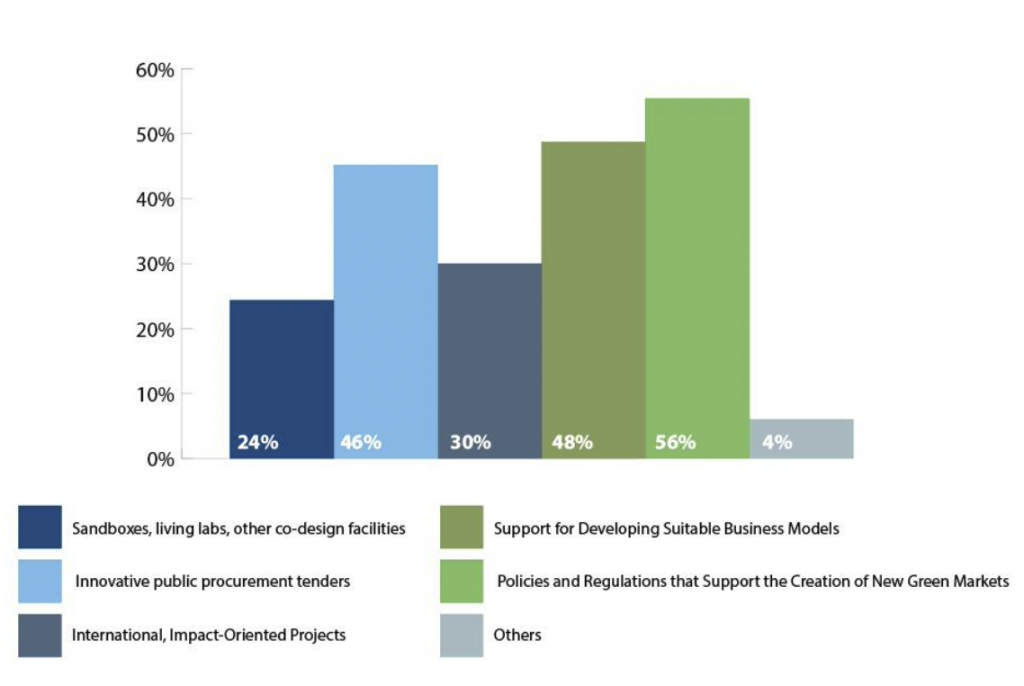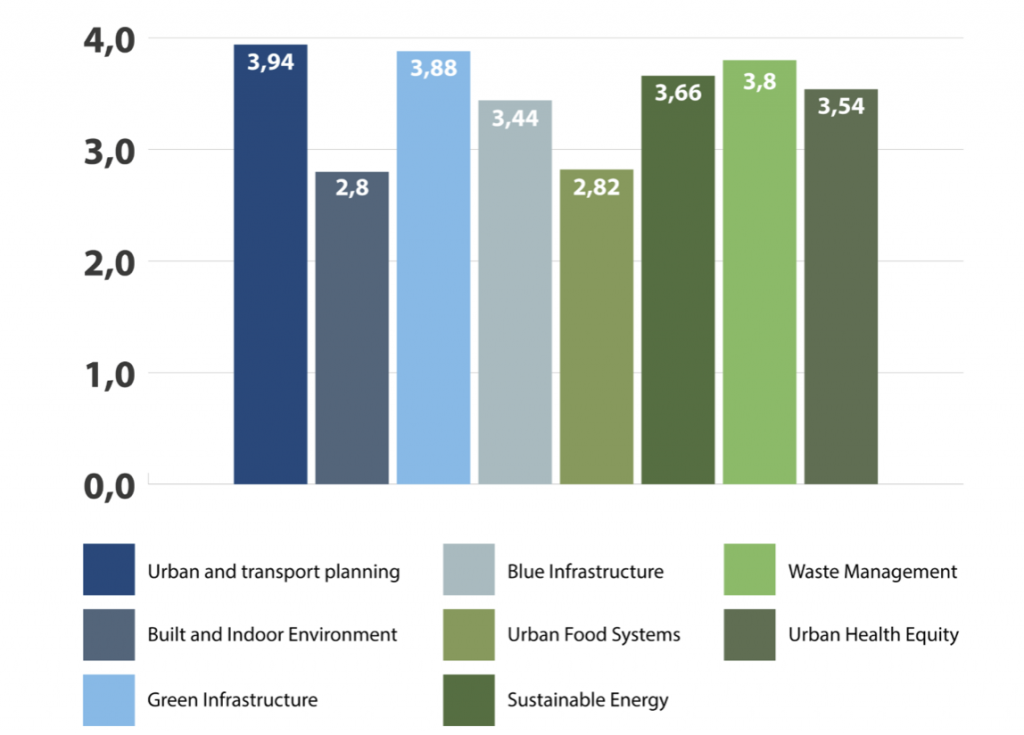U-SOLVE in Italy presents the challenges of Palermo's entrepreneurial ecosystem for a more sustainable city

Consorzio ARCA, lead beneficiary of U-SOLVE, conducted a research on Palermo’s business and entrepreneurial ecosystem to identify the most pressing sustainable development challenges, paving the way for the detection and application of appropriate solutions from the Cultural and Creative sector for sustainable change and progress.
U-SOLVE's Italian team classified and defined the most important urban stakeholders (the most interesting local realities when it comes to the environment and urban sustainability) and contacted them with the aim of gathering more information on their activities and expert knowledge on the strengths and weaknesses of Palermo's ecosystem. One hundred stakeholders who represent the civil society, start- ups/SMEs, local authorities, policy makers, academic/research organisations, business support organisations as well as cultural agencies and governmental organisations took part in this exercise.
Some sectors were identified and fifty-one comprehensive surveys were collected on sustainable urban development initiatives, challenges and opportunities in Palermo. In addition, fifteen in-depth interviews were conducted.
This work is fundamental for the involvement of the community, which is now called upon to actively contribute, through thematic focus groups and participation events, to the conception of possible solutions to make Palermo a more sustainable place, a city capable of guaranteeing the right to mobility, integration between the various technologies, personal connectivity and spaces dedicated to urban greenery.
The information and data collected through the survey suggest that Palermo, the fifth largest Italian municipality by population and capital of the Region of Sicily, is facing important sustainable development challenges. Chief amongst these challenges is the projection that Sicily (and of course Palermo) is part of a Region that will become a global climate change ‘hot spot’, with shifting weather patterns and changing climate conditions.
The following is a list of the most important challenges for the interviewed actors and an assessment of the priorities for a real change of the city in a sustainable direction: in this regard, 70% of the interviewees stated that public authorities, followed by NGOs/civil society representatives (with 54%) and university/research/private R&D institutions (48%), have a high level of importance and are crucial for influencing sustainable development initiatives and projects.
Obstacles to change
Challenges related to access to debt and equity financing represent moderate to major obstacles for entrepreneurs and start-ups seeking to operate in the city of Palermo, while access to subsidies represents a minor obstacle.
Regarding knowledge creation, the availability or otherwise of scientific studies on sustainable urban development is considered a significant problem for entrepreneurs and start-ups. Furthermore, half of respondents (50 %) believe that the number and accessibility of universities and research institutes is not a real barrier to economic and social transformation strategies.
There is a substantial lack of homogeneity in the opinions expressed by participants regarding the elements of politics and the business environment in Palermo, which are considered a significant obstacle by about 50%, while the remaining 50% consider them a minor obstacle or not a deterrent at all.
The survey responses reveal that entrepreneurial culture and motivation in Palermo is present, but a significant percentage of respondents believe that this culture should be further promoted and encouraged.
The availability and quality of human capital elements in Palermo seem to be a considerable problem for entrepreneurship and start-ups. Importantly, business support services in Palermo appear to be perfectly accessible. Regarding market demand, access to the local market is considered a minor/moderate obstacle by the vast majority of respondents, while access to the international market is considered a moderate/major obstacle.

Respondents were asked to choose which types of support they find most useful for their activities and to address the challenges of sustainable development, choosing from:
Access to Sandboxes, Living Labs, other co-design facilities;
Through innovative public tenders;
Participation in impact-oriented international projects;
Support for the development of appropriate business models;
Introduction of policies and regulations that support the creation of new green markets.
The most important support is the introduction of policies and regulations useful for sustainable development (56%). This type of support can have the greatest impact when it comes to creating the right environment for sustainable initiatives to succeed in Palermo. Additional comments
emphasise the need to improve community dynamics and implement more streamlined collaboration between companies and professionals.
The most important challenges of sustainable urban development in Palermo
Mobility

Urban and transport planning is considered the most important challenge to be taken up when talking about sustainable development in the city of Palermo, followed by green infrastructures and waste management linked to the opportunities provided by a circular economy.
Traffic congestion in the urban area of Palermo is in fact one of the most serious problems hindering sustainable development in the Sicilian capital and has a negative impact on the urban environment and citizens. There are 61 cars for every 100 inhabitants.
There is a lack of adequate sustainable public transport services (e.g. electric buses, car sharing, etc.) and there are few parking areas. Furthermore, 'soft mobility' in Palermo is still underdeveloped compared to the size of the city.
Green infrastructure
Palermo is among the Italian cities with the least area of green spaces equipped for children (0.15 square metres per child) compared to the national average of 25 square metres per child and has 11 trees per 100 inhabitants in publicly owned areas, placing it in the lowest range compared to 116-190 trees per inhabitant in the case of the greenest cities (Ecosistema urbano 2021 report - Legambiente)
Waste management
The most important actions to be taken by waste management regulations are measures which aim to prevent the creation of waste and waste as a hazard. Palermo’s performance in waste sorting is poor. Therefore, it is necessary for the city to take steps to improve its waste sorting performance in order to align with national and European trends. Recently, the areas that perform door-to-door sorted waste collection have increased and so has the use of the mobile ecological island system. Nevertheless, waste management is one of the Sicilian capital’s biggest and most unresolved environmental and social problems, it is so severe that it is regarded as one of the city’s emergencies. Palermo is the least sustainable city in Italy, as confirmed by the 28th edition of the Ecosistema urbano 2021 report, produced by Legambiente in collaboration with Ambiente Italia and Il Sole 24 Ore, which photographs the green performance of 105 provincial capitals in 2020, when the Covid beat faster and the lockdown had frozen travel. The overall ranking, determined by a set of 18 indicators, puts Palermo in last place.
Find out more: ENTREPRENEUR ECOSYSTEM ANALYSIS - ITALY/PALERMO CASE







